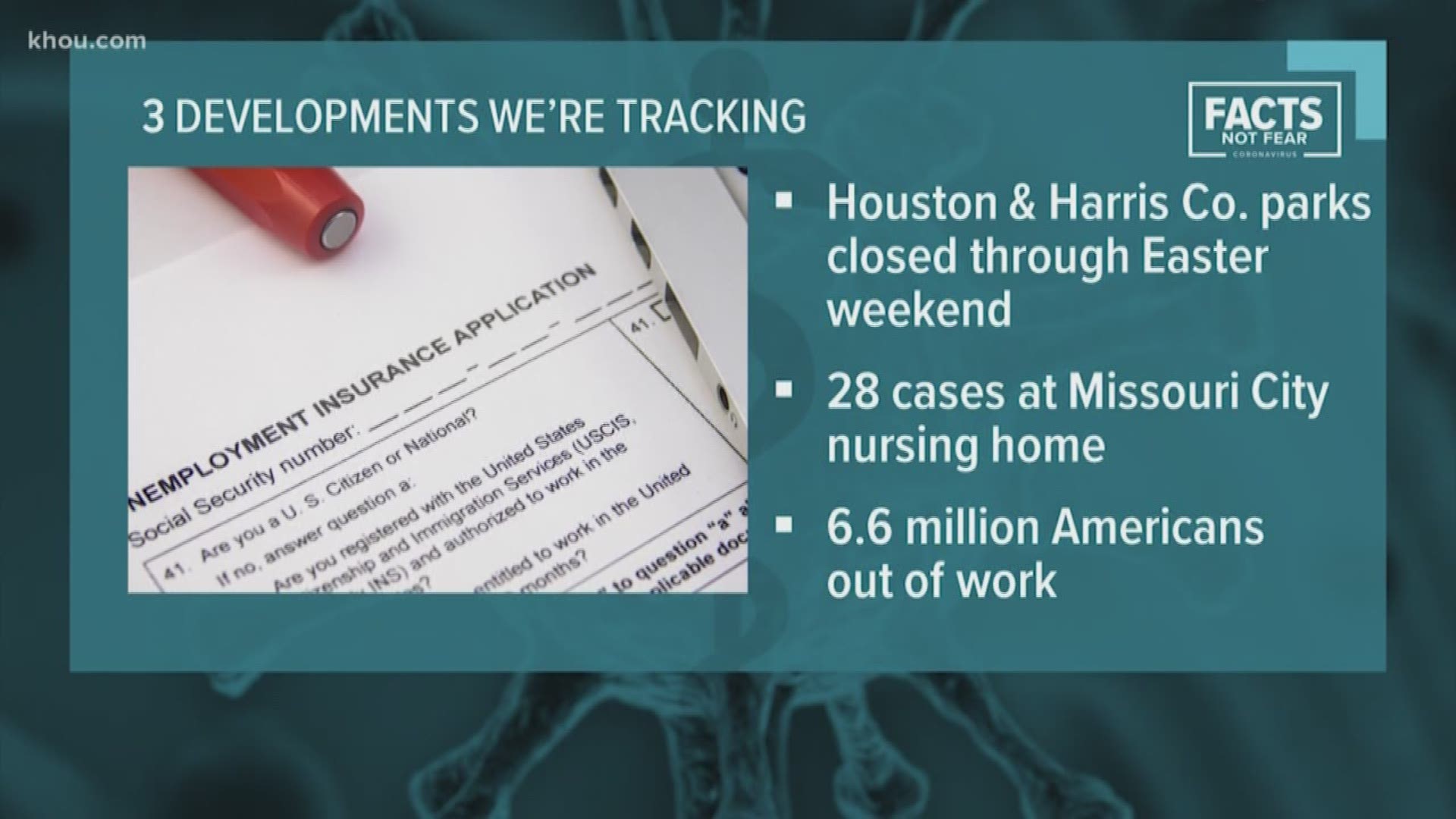A 36-year-old Seabrook woman is facing potential prison time for allegedly lying to a police officer that she tested positive for the novel coronavirus.
Nichole Ashley Forward was arrested for public intoxication on April 8 after she was found in a red truck in the 2800 block of NASA Parkway. Forward complained of medical issues after her arrested and was checked about by Nassau Bay EMS.
She then told officers that she tested positive for COVID-19 days earlier, the Seabrook Police Department said in a news release. Officers found that wasn’t true after an investigation.
She’s been charged with making a false statement, normally a Class B misdemeanor punishable by up to 180 days in jail and a fine up to $2,000. But because of a disaster declaration in effect in Harris County due to the coronavirus pandemic, the charge is enhanced to a state jail felony, which carries up to two years in prison and a $10,000 fine.
“Any individual who makes false statements about having COVID-19 during this current state of emergency adds additional stress and risk to officers who are responding to a call for service,” said Seabrook Police Chief Sean Wright. “This additional stress and risk greatly hinder first responders from doing their job.”
Coronavirus symptoms
The symptoms of coronavirus can be similar to the flu or a bad cold. Symptoms include a fever, cough and shortness of breath, according to the Centers for Disease Control. Some patients also have nausea, headaches and stomach issues.
Most healthy people will have mild symptoms. A study of more than 72,000 patients by the Centers for Disease Control in China showed 80 percent of the cases there were mild.
But infections can cause pneumonia, severe acute respiratory syndrome, kidney failure and even death, according to the World Health Organization. Older people with underlying health conditions are most at risk for becoming seriously ill. However, U.S. experts are seeing a significant number of younger people being hospitalized, including some in ICU.
The CDC believes symptoms may appear anywhere from two to 14 days after being exposed.
Human coronaviruses are usually spread through...
- The air by coughing or sneezing
- Close personal contact, such as touching or shaking hands
- Touching an object or surface with the virus on it, then touching your mouth, nose or eyes before washing your hands.
Help stop the spread of coronavirus
- Stay home when you are sick.
- Eat and sleep separately from your family members
- Use different utensils and dishes
- Cover your cough or sneeze with your arm, not your hand.
- If you use a tissue, throw it in the trash.
- Follow social distancing
Lower your risk
- Wash your hands often with soap and water for at least 20 seconds. If soap and water are not available, use an alcohol-based hand sanitizer.
- Avoid touching your eyes, nose, and mouth with unwashed hands.
- Avoid close contact with people who are sick.
- Clean and disinfect frequently touched objects and surfaces.
- If you are 60 or over and have an underlying health condition such as cardiovascular disease, diabetes or respiratory illnesses like asthma or COPD, the World Health Organization advises you to try to avoid crowds or places where you might interact with people who are sick.
Get complete coverage of the coronavirus by texting 'FACTS' to 713-526-1111.

